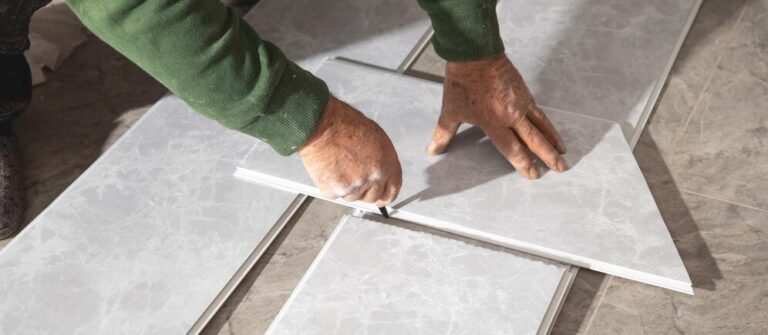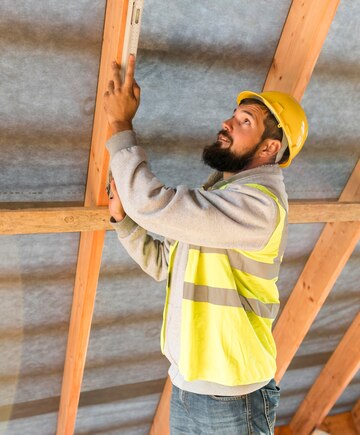How Much Do Home Inspectors Make?
The career of a home inspector is one often overlooked by those considering occupation in the real estate industry. Yet, it holds significant importance in the home-buying process, serving as a final check for potential property issues before a sale is completed. Skilled in the art of identifying defects, home inspectors examine various aspects of properties, including structural components, systems, and other critical features.
Salaries for home inspectors can vary widely, influenced by factors such as geography, experience, and whether they operate independently or within a company. In the United States, reports indicate that a home inspector’s earnings can average around $61,293 annually. Some home inspectors enhance their income by working with real estate professionals and investing in further training and certifications to distinguish their expertise.
Key Takeaways
- Home inspectors play a crucial role in the real estate industry by ensuring property conditions are up to standard.
- Salaries for home inspectors are influenced by multiple factors and may include additional earnings and benefits.
- Career growth for home inspectors can stem from further education, certifications, and establishing a business.
Understanding Home Inspector Salaries
What Factors Influence a Home Inspector’s Salary? A home inspector’s income can vary widely based on factors such as location, experience, whether they are self-employed or work for a company, and any specializations they may have. In the United States, a majority of salary data from job-related websites suggests a sizeable range in potential earnings for these professionals.
How Does Experience Affect Earnings? Typically, entry-level home inspectors might start with an average salary that can be close to $40,000 annually. With additional experience, certification, and reputation, home inspectors can expect to see their earnings increase, often to around $60,000 or higher.
What is the Average Home Inspector Salary in the United States? The average home inspector salary in the United States hovers around $61,440, as suggested by data from Indeed. However, other sources like PayScale report an average of around $51,766 in 2024.
Could Geographic Location Impact Salaries? Indeed, the region where a home inspector works can considerably influence their salary. Those in high-cost living areas or in locations with a booming real estate market may command higher wages, potentially up to $90,000 a year or more.
What Do Job Market Surveys Indicate? Surveys from different employment websites, including ZipRecruiter and Salary.com, often offer a range of salary expectations, reinforcing the notion that home inspector salaries can fluctuate based on various factors. The data is corroborated by industry salaries listed on sites like Ladders.
Factors Influencing Home Inspector Earnings
When considering how much home inspectors make, various elements such as location, experience, education, and type of employment play substantial roles. These factors cumulatively impact earning potential within the field.
How Does Geographical Location Affect Earnings?
Location has a direct correlation with a home inspector’s salary, as areas with higher costs of living typically offer higher wages to match. For instance, home inspectors in San Diego may earn more than their counterparts in rural areas due to the metropolitan’s elevated cost of living and housing prices.
What Impact Does Experience and Expertise Have on Income?
Experience level is crucial; generally, a senior home inspector with many years of experience is likely to earn more than an entry-level inspector. This progression reflects the depth of knowledge and practical ability that comes with time spent in the field. A highly experienced inspector might resolve complex issues and manage a wider array of inspection types, which can lead to increased earnings.
How Does Educational Background Influence Salary?
The level of education and certifications a home inspector holds can also influence earnings. Those with college degrees or specialized training often have a competitive edge. Holding a certified home inspector license, offered through professional organizations, can also lead to higher pay due to the trust and credibility it affords them.
How Does Type of Employment Impact Earnings?
Whether a home inspector is self-employed or an employee can make a significant difference. Self-employed home inspectors have the potential to earn more as they can set their services’ rates and grow their customer base extensively. However, this comes with its own set of challenges and risks. In contrast, an employee, possibly working for a government agency or a private firm, might earn a steady income with potential benefits, but may have less control over their earning potential.
The Role of Certification and Training
Becoming a certified home inspector involves accreditation through recognized certification authorities. Additionally, thorough training and education are essential for acquiring the knowledge and practical skills needed in the profession.
What Are the Required Certifications?
Certifications serve as a formal recognition of a home inspector’s expertise and adherence to industry standards. The International Association of Certified Home Inspectors (InterNACHI) is among the most prominent certification bodies, offering resources for home inspectors to become competent in their field. To be a certified home inspector, one must often prove their knowledge through various examinations. In many jurisdictions, a state-specific license is also required, which may entail additional criteria such as background checks or insurance.
- InterNACHI Requirements: Passing the Online Inspector Examination, completion of a Code of Ethics Course, and adherence to continuing education standards.
- Licensing: Varies by state; typically includes exams, application fees, continuing education, and may require on-site inspection training or shadowing.
Which Training Programs Are Available?
Training programs are designed to equip future home inspectors with the practical knowledge and skills they require. These programs might range from online courses to live classroom instruction. Organizations like American Home Inspectors Training (AHIT) provide comprehensive training that covers prelicensing, exam preparation, and certifications.
- Available Training:
- Online courses
- Hands-on field training
- Continuing education (CE) for license renewal
Many training programs emphasize real-life inspection scenarios, proper use of tools, report writing, and customer service. Some offer specializations in areas like electrical, plumbing, or HVAC systems, which can influence a home inspector’s salary.
- Specializations: Additional focused training on specific systems or structures within a home.
- Education Impact: Higher income potential and job opportunities for those with advanced education and training.
Career Advancement and Opportunities
In the realm of home inspection, career advancement hinges on understanding the job market, leveraging experience for salary increases, and continuously upgrading skills to stay competitive.
Job Market Dynamics: What Factors Affect the Demand for Home Inspectors?
The demand for home inspectors generally correlates with the activity in the real estate market. When there’s an uptick in house sales, more inspectors are needed to evaluate the conditions of homes. Currently, the housing market fluctuates, but the need for qualified inspectors remains due to the consistent flow of real estate transactions. Job openings vary by region, influenced by the local economy and housing demand.
Salary Growth with Experience: How Does Experience Impact a Home Inspector’s Earnings?
Pay by experience level serves as a critical metric in the home inspection industry. A home inspector’s starting salaryoften begins around the lower end of the spectrum, but with additional years of experience, individuals can expect substantial wage growth. For instance, entry-level inspectors might earn a base salary within the lower percentile, but mid-career professionals typically see a significant increase, with those possessing extensive experience potentially reaching higher earnings.
- Less than one year of experience: Typically the baseline for starting salaries in the field.
- 1-4 years: Expect moderate salary increases as one gains proficiency in the role.
- 5-9 years: Experience at this level can command higher pay and potential leadership roles.
- 10+ years: Inspectors with a decade or more of experience might fill senior positions or run their own businesses, seeing considerable earnings.
Upgrading Skills: What Training or Certifications Enhance a Home Inspector’s Career?
Home inspectors increase their marketability through continuous training and obtaining relevant certifications. Advanced knowledge of building codes, environmental regulations, and specialized inspection techniques can differentiate one inspector from another. Those who invest time in obtaining certifications, such as the Certified Master Inspector (CMI) designation, improve their credibility and appeal to potential employers or clients. Inspectors also benefit from understanding the latest industry trends and technologies, such as infrared thermography or energy efficiency assessments.
Additional Earnings and Benefits
In addition to their base salary, home inspectors may receive a range of supplemental earnings and benefits that enhance their overall compensation package. These can include performance-based bonuses, paid time off, and various insurance options, ensuring a competitive and comprehensive salary structure.
What Does the Benefits Package Include?
The benefits package for a home inspector can vary widely but often includes a mix of non-cash advantages. Some of the common benefits are paid time off (PTO) and flexible scheduling, which provide a healthy work-life balance. Employees may also enjoy fuel discounts which can offset travel expenses, especially if the job requires frequent driving to inspection sites.
How Do Insurance and Retirement Plans Contribute?
Insurance options typically encompass health, dental, and potentially life insurance, adding a layer of financial security for home inspectors. Additionally, home inspectors may have access to retirement plans like a 401(k), with some employers offering matching contributions to these plans, enhancing long-term financial stability for their employees.
These additional earnings and retirement contributions help to elevate the overall compensation well beyond the base salary, attracting professionals to the field and offering them a more secure financial future. Notably, top earners in this profession can have significantly higher total compensation when accounting for both salary and these additional perks.
Operational Costs and Expenses
When establishing a home inspection business, projected expenses play a crucial role in overall financial planning. They need to carefully consider the ongoing operational costs such as insurance, equipment, and travel, which are all integral to providing professional home inspection services.
What Are the Insurance and Liability Costs for Home Inspectors?
Home inspectors must account for insurance and liability costs, which protect their business against claims and lawsuits. Professional liability insurance, commonly known as Errors and Omissions (E&O) insurance, is critical and can cost $1,000 to $3,000 annually, depending on coverage levels. General liability insurance is also essential, offering protection from other risks, costing roughly the same.
What Tools and Equipment Do Home Inspectors Need?
The tools and equipment for home inspection range from basic hand tools to specialized instruments and home inspection software. Inspectors should budget for initial equipment costs of $3,000 to $5,000, which includes moisture meters, thermal imaging devices, and inspection software required for thorough inspections.
How Much Does Travel and Fuel Add to Operating Expenses?
Inspectors often cover broad territories, leading to significant travel and fuel expenses. They might benefit from fuel discounts or programs to manage costs effectively. It is important for inspectors to track mileage for tax deductions, as travel can add a variable amount to their operating expenses depending on the size and location of their service area.
Working with Real Estate Professionals
In the realm of residential property assessment, home inspectors play a crucial role. They collaborate extensively with real estate agents to ensure that both buyers and sellers obtain comprehensive evaluations of properties within the real estate market.
How Can Business Relationships Be Created?
A residential home inspector can establish robust business relationships with real estate professionals by showcasing reliability, thoroughness, and effective communication. By consistently delivering quality inspections, inspectors make themselves indispensable partners to agents who depend on their expertise to facilitate smooth transactions. These actions build trust and a reputation in the housing market, encouraging referrals.
- Visibility: Being visible in real estate circles, such as at open house events and seminars, helps to solidify these relationships.
- Professionalism: Maintaining a high level of professionalism in every interaction solidifies the home inspector’s status as a valued colleague.
What Necessitates Understanding Market Needs?
Understanding the needs of the real estate market entails staying abreast of current trends and responding to the changing demands of property assessments. Home inspectors need to comprehend what real estate agents and their clients expect from an inspection and tailor their services to meet these needs.
- Adaptability: Being flexible with scheduling and offering comprehensive services as the market dictates.
- Education: Keeping informed about new housing regulations and potential issues, like those identified by specialists such as Orkin for pest-related matters, helps home inspectors remain indispensable in a fluctuating market.
Inspection Skills and Defect Identification
Home inspectors are responsible for identifying defects in a property through detailed inspections. They utilize a range of inspection skills and defect identification techniques to ensure a thorough assessment of a home’s condition.
What are the Types of Home Inspections?
A variety of home inspections exist, each with specific focuses and methodologies. These include:
- Pre-purchase inspections: Conducted before buying a property to identify existing issues.
- Pre-listing inspections: Performed before selling to discover any defects that could impede a sale.
- New construction inspections: Assess newly built homes for compliance with building codes and standards.
- Warranty inspections: Evaluate the home before a builder’s warranty expires.
Home inspectors need to be adept in conducting these diverse inspections to successfully identify a wide range of potential defects.
What are Advanced Detection Techniques?
Home inspectors increasingly rely on advanced detection techniques to identify defects that are not visible to the naked eye. Some of these techniques include:
- Thermal imaging: Using infrared cameras to detect heat variations that signify potential electrical faults, insulation gaps, or water leaks.
- Moisture meters: Measuring the moisture levels in various materials to uncover hidden water damage.
- Drones: Providing aerial views for roof inspections where access is difficult or unsafe.
Moreover, inspection software plays a pivotal role, allowing inspectors to accurately document findings and organize reports with evidence of defects. This technology enhances the inspecting process, enabling more efficient and thorough inspections.
Setting Up a Home Inspection Business
When establishing a home inspection business, one must consider the legal structure and the marketing strategies that are critical for growth and sustainability. Mapping out a detailed business plan and ensuring a solid structure can pave the way for a self-employed home inspector to succeed.
What Is the Right Business Structure for a Home Inspector?
Choosing the appropriate business structure is a fundamental step for a self-employed home inspector. It’s important to select a structure that offers the right balance of legal protection and benefits. Most home inspectors opt for a Limited Liability Company (LLC) or sole proprietorship, due to their simplicity and limited liability protection, respectively.
- Limited Liability Company (LLC): Protects personal assets from business debts and liabilities.
- Sole Proprietorship: Simple to set up and may be suitable for those starting out with low risk.
Further, one must understand the potential tax implications and administrative responsibilities associated with each structure. Work experience in the industry may influence this choice, as those with more experience may feel confident enough to tackle more complex structures that could offer greater benefits.
How Do Home Inspectors Attract and Retain Clients?
Marketing and client acquisition are at the heart of a home inspection business’s success. Developing a comprehensive marketing plan is essential. Here are some specific strategies:
- Networking: Connect with real estate agents and lenders who can refer clients.
- Online Presence: Create a professional website and utilize SEO tactics to increase visibility.
- Social Media: Regularly engage with potential clients on platforms like LinkedIn or Facebook.
- Branding: Develop a unique and memorable brand identity that resonates with clients.
For a self-employed home inspector, building a strong reputation through positive work experience and customer referrals is crucial. It’s the word-of-mouth endorsements that often lead to sustained, long-term growth and stability in the home inspection industry.
Frequently Asked Questions
These frequently asked questions aim to provide clear insights into the earnings and career paths of home inspectors.
What is the average annual income for a home inspector?
The average annual income for a home inspector typically ranges between $30,000 and $90,000, with factors such as location, experience, and demand influencing the exact figure.
How long does it typically take to become a certified home inspector?
The time it takes to become a certified home inspector can vary, but it generally involves completing education requirements, which could be from a few weeks to several months, and meeting state licensing requirements, leading to a total duration of a few months to over a year.
What can a home inspector expect to earn per inspection?
Per inspection, a home inspector can expect to earn an average fee, which may be around $468 but this can vary widely depending on regional markets and the inspector’s experience level.
What are common benefits and drawbacks of a career in home inspection?
Benefits of a career in home inspection include flexibility of scheduling and the potential for entrepreneurship, while drawbacks may involve irregular workflow and the necessity of maintaining up-to-date knowledge on codes and regulations.
Which specializations within the field of home inspection offer higher salaries?
Specializations such as commercial property inspections, energy efficiency audits, or having expertise in specific systems such as electrical or plumbing could command higher salaries due to the increased knowledge and risk involved.
How does being a self-employed home inspector affect income potential?
Being a self-employed home inspector may offer higher income potential due to the ability to take on more jobs and set higher rates but also comes with additional responsibilities, such as business management, marketing, and directly absorbing business costs.






